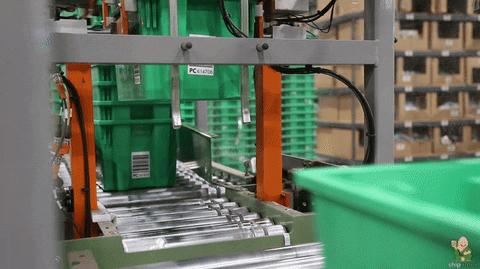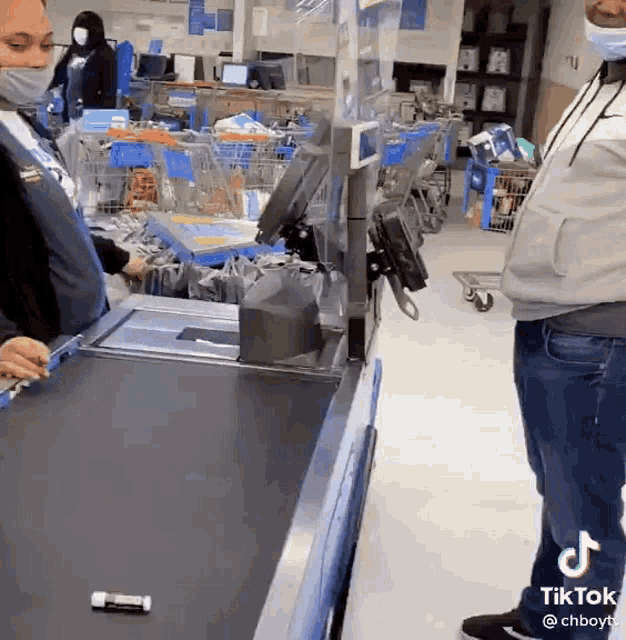
The retail automation market which is projected to grow at 12.9% CAGR to touch $64.09 Billion by 2032, amply reflects that retail automation solution is the key differentiator in driving sales, increasing ROI and enhancing operational efficiency in businesses, phenomenally.
The evolution and incorporation of AI in retail which is currently deployed by over 87% retailers in at least one aspect of their business. This marks a phase of transformative innovation allowing brands to overcome pressing operational and CX challenges with high-value features like:
- Hyper-personalized recommendations
- Virtual search technology powered by AR / VR
- AI automated customer service
- Smart vending machines
- AI powered inventory / stock optimization, demand prediction
- Fraud detection
- Cost / pricing management, and many more
In this blog, we will discuss ten ways in which retail automation solutions elevate brand efficiency and boost sales.
Ten Ways Retail Automation Solutions Boost Efficiency and Increase Sales

Let’s examine to what extent retail automation solutions are shaping the future of marketing and e-commerce.
1. Inventory Management

AI in retail has had an incredible impact in inventory management, allowing businesses to target and address critical and expensive pain points like mismanaged inventory, over/under-stocking, maintenance lapses etc. by infusing technologies like AI, Machine Learning (ML), Internet of Things (IoT) and more, with automation solutions.
Some of the main use cases of AI in inventory management automation includes demand forecasting, anomaly detection, real-time visibility, automated replenishments and predictive maintenance, which directly results in benefits like:
- reduced costs,
- minimization of risks associated with over/understocking or, inventory mismanagement
- increased efficiency,
- effective scalability and,
- tangibly improved customer satisfaction
2. Customer Acquisition Strategies for D2C Brands
AI in retail empowers businesses to leverage data-driven customer acquisition strategies by analyzing voluminous and often complex customer data. Also known as Big Data, it allows the construction of predictive models that help retailers identify key demographics, preferences and purchase behaviors of customers. This further enables the creation of highly targeted and personalized marketing campaigns, especially for direct-to-consumer (D2C) brands. Such data driven analytics increase the likelihood of customer conversion.
Furthermore, brands incorporate data driven analytics into their D2C subscription models as well, so that users are routinely presented with products that align with their preferences as well as previous purchases, securing long-term CLV and revenue stability.
3. Smart Vending Machines

AI powered smart vending machines (SMVs) are metamorphic innovations in retail that have enabled not just FMCG, but top brands in fashion, beauty, electronics and healthcare industries as well, to augment brand visibility while opening floodgates to life-long customers and sales.
Integrated with top technologies like IoT, SMVs are designed to boost brand presence and sales with key capabilities like
- smooth navigable operating systems for easy customer interactions
- secure cashless payment options for hassle-free purchases
- remote/real-time monitoring to always keep products in stock
- customized customer interactions for higher customer engagement
- AI backed data analytics for consistent improvements
Being self-operated units, SVMs reduce physical store space while increasing brand reach without adding to overhead costs, making it a game changer in retail automation solutions.
Furthermore, the portability and accessibility of SVMs in high footfall locations make them a potent addition to a brand’s portfolio. Strategies like on-screen advertising boosts brand visibility significantly, while adding an extra touch point in a customer’s journey to ensure they have access to their favorite products when and where they require. SVMs further, allow brands to maintain cross/up-selling techniques and loyalty programs, thereby merging on/offline shopping experiences for augmented CX.
4. Personalised Customer Experience

Placing products in perfect alignment with the needs and preferences of individual customers is a key pain point that AI in retail has solved successfully.
Retail automation solutions utilize in-depth customer data to deliver hyper-personalized shopping experiences, that was previously implausible. By analyzing purchase history, browsing behavior, demographics, customer preferences and predictive demand analysis, retailers can tailor product recommendations, promotions and communication to individual needs. This personalized approach through advanced retail technology, fosters stronger customer relationships, enhances brand loyalty, and drives higher conversion rates.
This is in fact, how D2C cosmetics and fashion brands have been boosting conversions and increasing sales in an organic manner.
5. Price Optimisation
A giant leap by AI in retail in terms of pricing and profitability, AI-powered algorithms now enable retailers to optimize pricing strategies dynamically. Algorithms in this retail automation solution consider a multitude of factors, including demand, competition, and inventory levels, to determine the most profitable prices for each product. By adjusting prices in real-time, retailers can maximize revenue, increase competitiveness, and improve profit margins.
6. Supply Chain Management

As per McKinsey reports, companies can experience 10%-20% reduction in costs and 15% increase in service levels by deploying AI in supply chain management.
Automation in retail enhances supply chain efficiency significantly. By leveraging predictive analytics, retailers can anticipate demand fluctuations, optimize inventory levels and streamline the entire supply chain process for optimal performance.
The benefits of using advanced retail technology in supply chain optimizations are multifaceted including reduced delays, minimized transportation costs and optimized delivery schedules, ultimately improving customer satisfaction and reducing operational expenses for improved profits.
7. Check-Out Efficiency

Checkout efficiency is a key component when it comes to driving up sales. Customers in general, neither like waiting in queues nor the lengthy manual checkout procedures, especially those that don’t support their payment methods. Long and tedious checkouts are thus, a common CX challenge that retail automation solution aims at eliminating. Retail automation tools such as wireless payment systems especially those integrated with smart vending machines streamline the checkout process, enabling customers to make quick and convenient purchases with quick selection and expedited billing process.
8. Discounts and Promotions

AI tools in retail, allow D2C brands to segment their customers and develop dynamic data-driven campaigns that target specific customer segments differently. Dynamic promotions leverage the power of data analytics to base the pitch on past history of purchase and preferences, offering an array of personalized benefits that maximize customer engagement while driving profits.
Retail automation solutions thus, prioritize brand campaigns, promotional offers, discount codes, loyalty points, festive sales, etc. with omnichannel availability that enhance profitability for companies while bringing in new customers.
9. Returns and Refunds
Returns and refunds are a part and parcel of retail marketing. It allows customers to return products in case the purchased item is damaged, doesn’t fit or is not required anymore, with the assurance of full refunds.
However, the hassle of returning and refunding items poses a common CX challenge with numerous brands failing to live up to customer expectations of 24-hour pickup and instant refunds.
Intelligent retail automation solution addresses this issue by allowing customers to initiate returns online, track return status in real-time and receive refunds as quickly as possible; often as little as an hour after return pick-up. This streamlined process reduces operational costs, minimizes customer frustration, and enhances customer satisfaction and trust while fostering a positive brand image.
10. Automated Employee Scheduling
Optimization of staff utilization is a critical cost-control and efficiency boosting strategy for businesses. AI-powered retail technology is thus, used to optimize employee scheduling based on foot traffic patterns, historical sales data and anticipated customer demand. This ensures that the right number of employees are available at the right time to maintain customer service levels; minimizing labor costs during slow periods and scaling up customer service cost-effectively during peak hours.
Embrace the Future with Retail Automation.

By incorporating OgmentO’s innovative smart vending machines in your business, you can bolster sales, increase profitability and enhance operational efficiency with less effort and costs. Our SVMs are available in 3 different capacities and can fit diverse range of products from the beauty, healthcare, electronics and fashion industries.
Powered by AI and effective retail technology, Smart kiosks from OgmentO can be the best-fit retail automation partner for your business. With our SVMs, you can easily reduce common human errors and improve the overall shopping experience for customers, creating a buffed brand image and garnering improved brand loyalty as well.
Embracing retail automation solutions is the key to influence a brand’s growth and future, potentially helping in outpacing competitors with substantial lead.
Explore OgmentO’s smart vending machines and retail automation solutions. For more information, write to us at hello@ogmento.io or speak to our experts at +91 78383 38309 / +91 98990 18464

